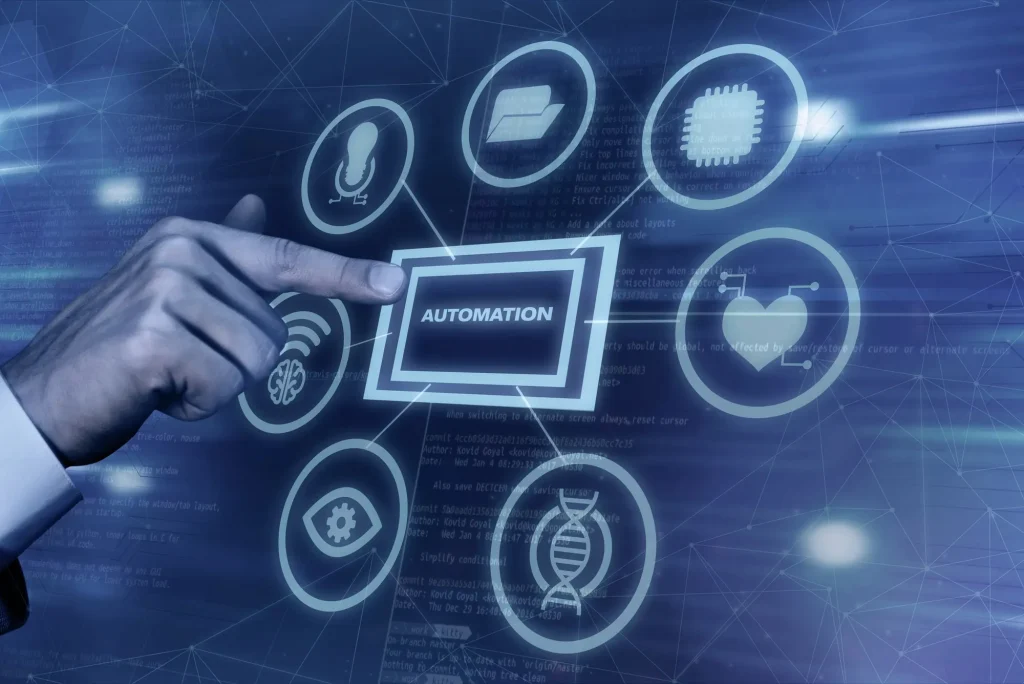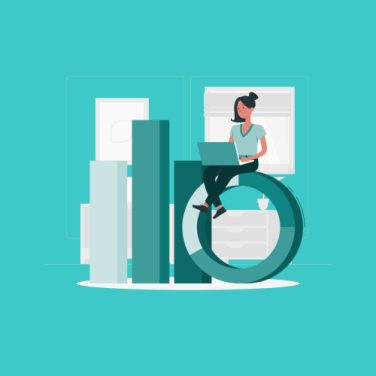Artificial Intelligence (AI) is becoming a force to reckon with in the business sector, driving a transformation that’s redefining conventional models across industries.
In the realm of human resources, this technological evolution is particularly impactful, as it offers the potential to automate repetitive tasks, effectively manage data, and provide deeper analytical insights.
The advent of AI signifies not just an upgrade to existing systems, but a paradigm shift that promises to enhance efficiency and decision-making processes.
AI meets HR
Despite initial apprehensions surrounding AI’s role in HR, the technology offers significant benefits that can’t be overlooked.
At its core, AI serves as a tool to amplify – not replace – human capabilities within HR roles. This collaboration between human expertise and machine efficiency could alleviate common functional pains by performing activities better, faster, and more cost-effectively.
It’s a compelling case for HR professionals to leverage AI tools while continuing to offer uniquely human insights and empathy – a balance critical for thriving in the evolving digital workplace.
AI-driven recruitment tools

As businesses harness the capabilities of AI, a substantial transformation is underway in the recruitment and workforce management domains.
AI-driven recruitment tools are at the forefront of this evolution, redefining how talent acquisition is approached. These smart tools use advanced algorithms to screen resumes more efficiently, ensuring only the most relevant candidates are shortlisted for manual review.
Organisations are increasingly adopting such technologies to expedite their hiring processes, thereby minimising human error and bias, and saving both time and resources.
Transforming workforce management
Beyond recruitment, AI is leaving its mark on workforce management strategies as well.
AI tools allow managers to utilise data analytics for making strategic, data-driven HR decisions that can significantly enhance efficiency and productivity. Such tools are critical in paving the way for a streamlined HR function, where decision-makers can focus on strategic initiatives rather than getting bogged down by repetitive, administrative tasks.
AI’s capability to analyse vast amounts of data quickly facilitates improved strategic decision-making. HR Analytics plays a pivotal role by providing insights into employee performance, productivity levels, and turnover rates.
This data-driven approach assists businesses in identifying areas that require attention, thus crafting a more responsive and proactive HR function that aligns with organisational goals.
Enhancing employee experienc

The integration of AI into HR processes also significantly enhances the employee experience.
Personalised engagement tools powered by AI anticipate and meet the unique needs of employees, contributing to better job satisfaction and retention rates.
Through predictive analytics, businesses can foresee potential issues such as absenteeism or turnover, allowing for pre-emptive strategies to maintain workforce stability and morale. These advancements position HR not just as a support function, but as a strategic partner within the organisation, instrumental in driving the business forward.
In conclusion, AI is not simply about replacing HR roles with automation. Rather, it’s about augmenting HR capabilities, transforming the department into a tech-enabled powerhouse that leverages data for strategic advantage.
The potential for AI to redefine HR means professionals must adapt and embrace these tools to remain indispensable in an increasingly digital workplace.
Comparison of human judgment and AI efficiency
Humans naturally excel at understanding nuanced situations, interpreting emotional cues, and exercising empathy – qualities essential for fostering workplace culture and addressing sensitive HR matters.
Conversely, AI’s unparalleled data processing ability allows it to manage large datasets swiftly, providing rapid analytics and insights that aid strategic decisions.
Tasks where human involvement is irreplaceable
- Conflict resolution: Resolving interpersonal conflicts involves empathy and understanding that AI cannot fully replicate.
- Cultural development: Shaping an organisation’s culture is nuanced and requires human touch and intuition.
- Strategic initiation: While AI can suggest strategies, the initiation, and adaptation of these strategies require human foresight and flexibility.
AI’s limitations in HR compared to human interaction
Though AI is invaluable in processing information, certain limitations highlight the need for human oversight.
For example, AI may lack accuracy without quality input data, and ethical concerns like privacy remain significant. As HR integrates AI, maintaining a balance between technological efficiency and human judgment is critical to uphold fairness and ethical standards in decision-making.
This synergy between AI and human expertise positions organisations to harness the strengths of both, ensuring that while HR technology advances, the human element remains a cornerstone of effective workplace management.
Learning from leaders
Organisations at the forefront of AI implementation in HR provide valuable insights into the strategic potential of these technologies.
Companies like MiHCM have showcased how AI products streamline HR tasks, boost productivity, and enhance employee engagement.
Leveraging MiHCM solutions allows businesses to orchestrate HR operations seamlessly, aligning technology with strategic goals. This approach highlights the practical benefits AI can bring to HR, including efficient recruitment processes, strategic talent management, and data-driven decision-making.
In real-world applications, AI has shown immense promise and AI’s potential to transform how HR professionals approach their workday cannot be overstated, illuminating pathways to streamlined processes and enhanced productivity.
Industry perspectives
Industry experts have consistently highlighted the effectiveness of AI integration with human oversight to mitigate risks and maximise benefits.
As AI technologies become more sophisticated, they are expected to work synergistically with human resources, preserving the delicate balance between automation and human expertise. This balance is pivotal in maintaining ethical standards and ensuring the humane aspect of HR practices continues to thrive.
Renowned industry analysts emphasise the strategic role AI is playing within HR departments, from streamlining repetitive tasks to enhancing decision-making capabilities.
By automating mundane HR tasks, AI allows professionals to allocate their time and effort to more strategic roles, such as talent development and cultural transformation – areas where human touch is irreplaceable.
Success stories involving the use of AI in HR underscore a common theme: AI empowers HR teams to move away from administrative duties and focus more on driving strategic initiatives. These practical implementations result in significant efficiency gains and offer an invaluable lesson in leading HR with innovation at its core.
Businesses on the cutting edge of AI in HR prove that maintaining an equilibrium of human expertise with AI capabilities creates a new synergy that propels organisations into future-ready operations.
What HR must evolve
The future of HR leans towards strategic partnership, requiring a set of skills critical to navigating an AI-driven workplace.
This evolution means that HR professionals should not only focus on administrative efficiency but also prioritise strategic decision-making, talent development, and cultural enrichment.
To remain relevant in this digital age, HR professionals must adapt to the emerging challenges and opportunities presented by AI. Key areas include:
- Developing AI literacy: HR leaders should seek to understand AI tools and their applications within HR functions.
- Data-driven decision making: Embracing data analytics can empower HR professionals to make informed decisions based on comprehensive insights.
- Cultural transformation: Fostering an organisational culture that embraces technological change is paramount. HR leaders can spearhead initiatives that encourage innovation and adaptability among the workforce.
- Continuous learning: As AI technologies evolve, so must the skillsets of HR professionals. Encouraging continuous learning and professional development prepares HR departments for future advancements.
Ethical concerns and compliance issues
The integration of AI in HR brings both opportunities and challenges, particularly when considering ethics and legal implications. Notably, while AI can enhance efficiency, it must be used responsibly to ensure fairness and transparency in HR practices.
- Ethical concerns: AI’s ability to process large datasets raises questions about data privacy and accuracy. HR departments must ensure that AI tools are trained on unbiased and diverse data to prevent discriminatory outcomes. In situations like recruitment, it’s essential to maintain oversight on AI decision-making processes to avoid unintentional biases that could affect candidate selection.
- Legal implications: The use of AI in HR also necessitates compliance with data protection laws such as GDPR and CCPA. Companies must ensure that their use of AI tools does not violate employee privacy rights. Keeping transparent documentation of how AI systems make decisions can mitigate legal liabilities and enhance trust in AI-driven processes.
- Ensuring fairness and transparency: It’s crucial to provide employees with clear information about how AI systems are used within the organisation. This includes setting ethical guidelines and creating channels for feedback. By fostering a culture of openness around AI’s role in the workplace, HR can mitigate fears and build employee confidence in these technologies.
As AI continues to evolve, HR leaders must navigate these ethical and legal challenges thoughtfully. By embedding ethical considerations into AI deployment strategies, HR can ensure that AI enhances rather than compromises the integrity of human resource functions.



